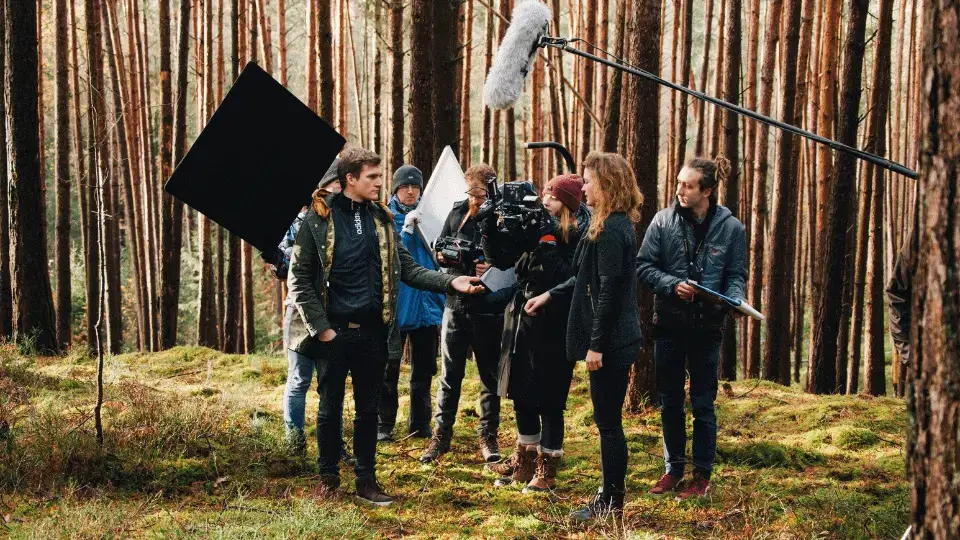1. Understand the Role of a Documentary Producer
As a documentary producer, your primary responsibility is to oversee the entire production process, from concept development to distribution. You’ll collaborate with directors, writers, and crew members to bring the vision of the documentary to fruition. This includes managing budgets, securing funding, conducting research, arranging interviews, and ensuring legal compliance.
2. Develop a Strong Understanding of the Documentary Genre
To excel as a documentary producer, it’s crucial to have a deep appreciation and understanding of the documentary genre. Watch a wide range of documentaries, from classic to contemporary, to gain insights into different storytelling techniques, narrative structures, and visual styles. This will help you develop your own unique approach and voice as a documentary producer.
3. Hone Your Storytelling Skills
At the heart of every successful documentary is a compelling story. As a documentary producer, you need to have a knack for identifying powerful narratives and shaping them into engaging films. Learn the art of storytelling, study different narrative structures, and practice crafting captivating story arcs that resonate with audiences.
4. Master the Technical Aspects of Production
While you don’t need to be an expert in every technical aspect of documentary production, having a solid understanding of the process is essential. Familiarize yourself with camera equipment, lighting techniques, sound recording, and editing software. This will enable you to effectively communicate with your crew members and make informed decisions during the production phase.
5. Build a Strong Network
Networking is a vital part of any industry, and the documentary field is no exception. Attend industry events, film festivals, and conferences to connect with like-minded professionals, directors, cinematographers, and potential collaborators. Joining professional organizations or online communities can also provide valuable networking opportunities.
6. Gain Practical Experience
Hands-on experience is invaluable in the documentary industry. Seek out opportunities to work on documentary projects, even if it means starting as a production assistant or intern. This will help you learn the ropes, build your portfolio, and establish relationships with industry professionals. Consider volunteering for nonprofit organizations or local community projects to gain experience while making a positive impact.
7. Educate Yourself
While formal education is not a prerequisite for becoming a documentary producer, pursuing relevant courses or degrees can provide you with a strong foundation and enhance your credibility. Look for film schools or programs that offer courses in documentary production. New York University (NYU) and its Tisch School of the Arts offer reputable programs in this field.
8. Stay Updated with Industry Trends
The documentary industry is constantly evolving, with new technologies and platforms shaping the way documentaries are produced and consumed. Stay abreast of industry trends, attend workshops or seminars, and keep an eye on emerging distribution channels like streaming platforms and online platforms. This will help you adapt to the changing landscape and stay relevant in the industry.
9. Seek Funding and Distribution Opportunities
Securing funding for documentary projects can be a challenging task. Research various funding options, such as grants, foundations, crowdfunding, and co-productions. Familiarize yourself with the distribution landscape and explore different avenues for showcasing your documentaries, including film festivals, online platforms, and television networks.
10. Embrace Continuous Learning
The journey to becoming a successful documentary producer is a lifelong learning process. Stay curious, seek feedback from peers and mentors, and be open to constructive criticism. Continuously refine your skills, expand your knowledge, and push the boundaries of storytelling to create impactful documentaries.
In conclusion, a career as a documentary producer is a thrilling and rewarding path for those passionate about storytelling and creating meaningful content. By understanding the role, honing your skills, building a network, gaining practical experience, and staying updated with industry trends, you can pave your way to success in the dynamic world of documentary production. So, take the first step, embark on this exciting journey, and let your passion for documentaries shine through.
Stay tuned for more insightful articles on the Entertainment industry and the NYU Business of Entertainment online courses offered by Yellowbrick.
Key Takeaways
- Documentary producers oversee the entire production process, from concept development to distribution.
- Develop a strong understanding of the documentary genre by watching a wide range of documentaries.
- Hone your storytelling skills to create compelling narratives that resonate with audiences.
- Familiarize yourself with the technical aspects of production, such as camera equipment and editing software.
- Build a strong network by attending industry events and joining professional organizations.
- Gain practical experience by working on documentary projects and volunteering for nonprofit organizations.
- Consider pursuing relevant courses or degrees to enhance your knowledge and credibility.
- Stay updated with industry trends and emerging distribution channels.
- Research funding options and explore different avenues for showcasing your documentaries.
- Embrace continuous learning and seek feedback to refine your skills and push the boundaries of storytelling.
To further enhance your knowledge and skills in the business of entertainment, consider taking the NYU Business of Entertainment online course and certificate program offered by Yellowbrick. This comprehensive program will provide you with valuable insights into the entertainment industry, including strategic planning, marketing, finance, and more. By combining your passion for documentaries with a strong business foundation, you’ll be well-equipped to thrive as a documentary producer in the competitive landscape of the entertainment industry.








